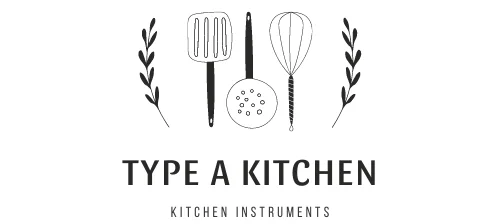When it comes to cleaning products, we often assume that if something works well in one area of the house, it should work just as effectively in another.
But is it safe to use bathroom cleaner in the kitchen?
Many people may not realize that different areas of our homes have different cleaning needs, and using the wrong product can lead to potential health hazards.
While some ingredients in bathroom cleaners may be effective at tackling tough stains and grime, they can also contain harmful chemicals that should not come into contact with food preparation surfaces.
One key factor to consider is the type of surfaces you are cleaning. Bathroom cleaners are typically formulated for use on non-porous surfaces such as porcelain, ceramic, or stone.
These surfaces are not commonly found in kitchens where there are more likely to be food-preparation areas made of wood or laminate countertops.
Using a bathroom cleaner on these porous surfaces could result in chemical residue being left behind which can contaminate food and pose a risk to your health.
Many bathroom cleaners contain disinfectants like bleach or ammonia which can release toxic fumes when mixed with other household products commonly found in the kitchen like vinegar or certain types of dish soap.
This chemical reaction can create chlorine gas which is extremely dangerous if inhaled and can cause respiratory problems or even death.
Understanding Different Types of Cleaners
Before we delve into the safety concerns of using bathroom cleaner in the kitchen, it’s essential to understand the differences between various types of cleaning products.
Household cleaners are typically categorized into two main groups: kitchen cleaners and bathroom cleaners.
1. Kitchen Cleaners:
- Designed to target grease, food stains, and general kitchen messes.
- Often contain ingredients like degreasers and surfactants.
- Suitable for use on surfaces where food preparation and storage occur.
2. Bathroom Cleaners:
- Formulated to tackle soap scum, mineral deposits, mold, and mildew.
- May contain ingredients like bleach, ammonia, and abrasives.
- Intended for use in the bathroom where moisture and soap residue are common.
Factors to Consider
When deciding whether it is safe to use bathroom cleaner in the kitchen, several factors should be considered:
1. Ingredients:
- Bathroom cleaners often contain harsh chemicals like bleach or ammonia, which can be toxic when ingested or come into contact with food.
- Kitchen cleaners are formulated with ingredients that are safe for food preparation surfaces.
2. Surface Compatibility:
- Some bathroom cleaners may be abrasive and can damage kitchen surfaces, especially those with sensitive finishes like stainless steel or granite.
3. Cross-Contamination:
- Using bathroom cleaner in the kitchen can lead to cross-contamination, introducing harmful chemicals to food preparation areas.
4. Residue:
- Residue from bathroom cleaners may linger on surfaces even after rinsing, potentially contaminating food.
Safety Precautions
If you find yourself in a situation where you need to use bathroom cleaner in the kitchen, follow these safety precautions:
Dilution:
If using a bathroom cleaner, dilute it with water to reduce its strength, making it less likely to leave harmful residues.
Rinse Thoroughly:
- After cleaning with a bathroom cleaner, rinse the surface thoroughly with water to remove any lingering residue.
- Avoid Food Contact:
- Do not use bathroom cleaner directly on areas where food is prepared, stored, or served.
- Use Kitchen-Safe Alternatives: Whenever possible, opt for kitchen-specific cleaners that are designed for the surfaces and tasks in your kitchen.
Conclusion
In conclusion, it is not recommended to use bathroom cleaner in the kitchen due to the potential safety hazards and the risk of cross-contamination.
Bathroom cleaners are formulated for different purposes and may contain harsh chemicals that are not safe for food preparation areas.
To ensure the safety of your family and the cleanliness of your home, it’s best to use cleaning products specifically designed for the kitchen in the kitchen and bathroom cleaners in the bathroom.
Always read product labels, follow safety guidelines, and exercise caution when using cleaning products in your home.
FAQs
Q1: Can I use bathroom cleaner in the kitchen in a pinch if I run out of kitchen cleaner?
A1: It’s not recommended. Bathroom cleaners often contain harsh chemicals like bleach or ammonia, which can be unsafe for kitchen surfaces and food preparation areas. It’s better to use alternative cleaning methods or products specifically designed for kitchens to avoid potential health risks.
Q2: Are there any bathroom cleaners that are safe for kitchen use?
A2: While some bathroom cleaners may be milder than others, it’s generally best to use products designed specifically for kitchens in food preparation areas. These kitchen-specific cleaners are formulated to be safe on surfaces that come into contact with food and are less likely to leave harmful residues.
Q3: Can I dilute bathroom cleaner to make it safer for kitchen use?
A3: Diluting bathroom cleaner with water can reduce its potency and make it safer for certain kitchen surfaces. However, it’s important to remember that some bathroom cleaners may still contain chemicals that are not food-safe, even when diluted. It’s generally better to use a kitchen-appropriate cleaner if possible.
Q4: What are the potential risks of using bathroom cleaner in the kitchen?
A4: Using bathroom cleaner in the kitchen can pose several risks, including:
- Chemical contamination of food or food preparation surfaces.
- Damage to kitchen surfaces, especially those with sensitive finishes.
- Residue that may linger on surfaces, potentially harming your health if it comes into contact with food.
- Cross-contamination of harmful chemicals in food preparation areas.
Q5: How can I safely clean both my bathroom and kitchen without buying multiple cleaning products?
A5: To minimize the need for multiple cleaning products, consider using all-purpose cleaners that are designed to be safe and effective on various surfaces. These cleaners are versatile and can be used in both bathrooms and kitchens. Always read product labels to ensure they are suitable for the surfaces you intend to clean.

